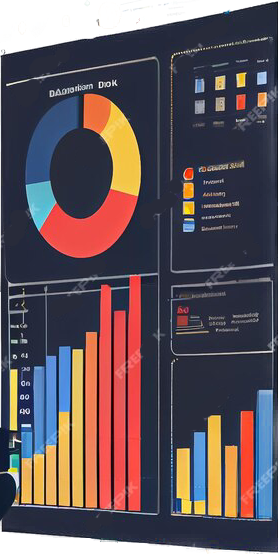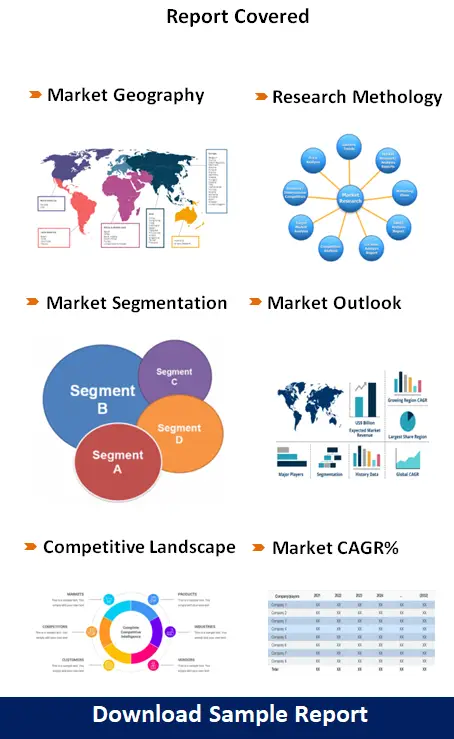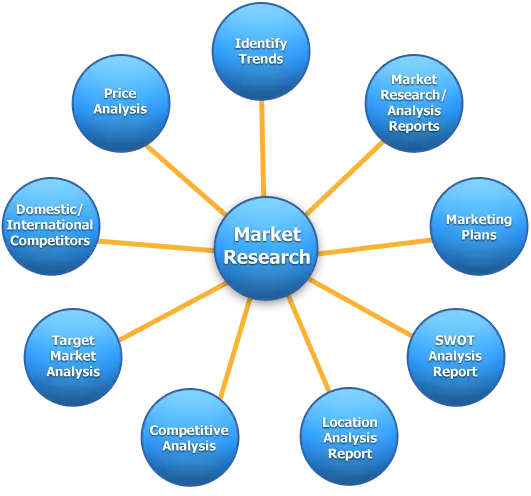LED Strip Market Growth CAGR Overview
According to research by Infinitive Data Research, the global LED Strip Market size was valued at USD 5.6 Bln (billion) in 2024 and is Calculated to reach USD 9.6 Bln (billion) by the end of 2032, growing at an anticipated compound annual growth rate (CAGR) of 10.8% during the forecast period 2024 to 2032. This projected growth is driven by its increasing adoption across Telecommunications industries such as Home Application, Commercial ApplicationThe LED strip market is evolving rapidly as both consumers and businesses seek efficient, versatile, and aesthetically appealing lighting solutions. Increasing demand for energy-saving lighting coupled with the desire for customizable ambiance has driven both product innovation and adoption. Manufacturers are continuously refining their designs, resulting in LED strips that offer improved luminosity, color options, and flexible installation options that meet diverse applications—from home décor to commercial and industrial use.
Technological advancements have played a crucial role in reshaping the market. Recent innovations in semiconductor technology, improved heat dissipation, and integrated smart features (such as app control and IoT connectivity) have enhanced performance and user experience. These breakthroughs have not only increased the reliability and longevity of LED strips but also spurred new design possibilities, thereby widening the potential applications and boosting consumer interest.
Government regulations and environmental considerations have also contributed significantly to market dynamics. As nations worldwide adopt stricter energy efficiency standards and sustainability initiatives, LED strips—known for their low energy consumption and minimal environmental impact—have become a preferred choice over conventional lighting. This regulatory backing, coupled with tax incentives and rebates in many regions, continues to drive market growth and encourages manufacturers to invest further in sustainable product development.
Competitive pressures and evolving consumer tastes are further shaping the market. As numerous players vie for market share, product differentiation through advanced features such as waterproofing, remote control options, and integration with smart home ecosystems has become essential. This competitive landscape pushes companies to innovate continually, reduce costs through efficient manufacturing, and explore strategic collaborations that enhance their product portfolios and distribution networks.
Lastly, broader economic trends and rising disposable incomes—especially in emerging economies—are creating an environment where consumers are willing to invest in premium lighting solutions. Increased urbanization, a surge in renovation projects, and the growing influence of interior design trends have all contributed to a robust and dynamic market that is expected to continue its upward trajectory in the coming years.
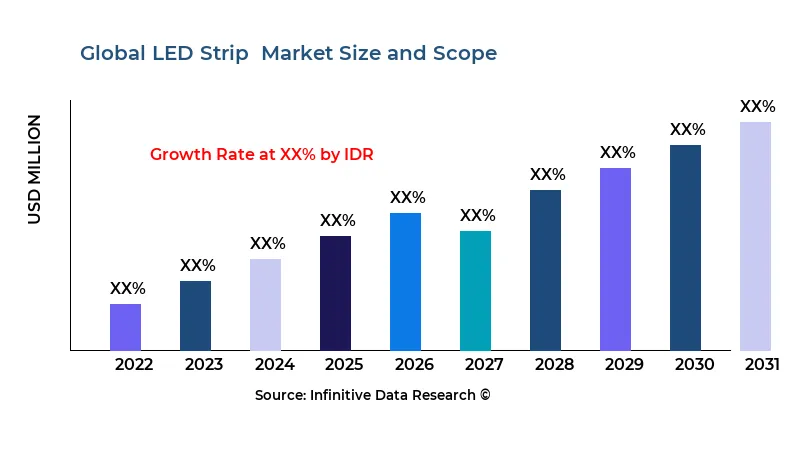
>>> Understand The Key Trends Shaping This Market:- Download PDF Sample
Led Strip Market Growth Factors
One of the primary growth drivers is the escalating global demand for energy-efficient lighting. Consumers and businesses are increasingly conscious of energy consumption and operational costs, leading to a preference for LED strips that not only reduce electricity bills but also offer longevity and low maintenance. This shift toward sustainable and cost-effective lighting solutions is accelerating market expansion across both developed and emerging economies.
Technological innovation is another significant factor contributing to market growth. Advances in LED chip technology, improved manufacturing processes, and the integration of smart controls have significantly enhanced the functionality of LED strips. These improvements have led to products that offer better color rendering, adjustable brightness, and compatibility with home automation systems, thereby broadening the appeal to both residential users and commercial establishments.
The expanding construction and interior design markets are also fueling growth. Modern architectural trends favor innovative lighting solutions that add ambiance and enhance aesthetic appeal, making LED strips a popular choice for accent lighting in homes, offices, and public spaces. The increased focus on smart cities and modern urban developments has further stimulated demand, as LED strips are integrated into both functional and decorative lighting applications in new constructions and retrofitting projects.
Government initiatives and environmental regulations worldwide are playing an important role in driving market growth. Many countries have set aggressive targets for reducing carbon emissions and are actively promoting energy-efficient technologies. Such policies not only boost the adoption of LED lighting solutions but also create an enabling environment for investments in research and development, ultimately propelling the LED strip market forward.
Finally, the rapid expansion of online retail channels and an improved global distribution network have made LED strips more accessible to a wide range of customers. The ease of purchase via e-commerce platforms, combined with competitive pricing and a wide array of product options, has contributed to market growth. As digital sales channels continue to evolve and gain consumer trust, they further reinforce the upward trajectory of the LED strip market.
Market Analysis By Competitors
- Forge Europa
- LEDVANCE
- Ledridge Lighting
- Digital Advanced Lighting
- Lighting Ever
- LEDMY
By Product Type
- 5050
- 3528
- Others
By Application
- Home Application
- Commercial Application
>>> Understand The Key Trends Shaping This Market:- Understand The Key Trends Shaping This Market:-
Led Strip Market Segment Analysis
Distribution ChannelThe LED strip market is segmented by distribution channels that include both traditional offline retail and rapidly growing online platforms. Brick-and-mortar stores, specialty lighting shops, and large-scale home improvement centers remain critical for consumers who prefer personalized service and in-person product demonstrations. At the same time, the surge in e-commerce has enabled manufacturers and distributors to reach a broader audience with detailed product information, competitive pricing, and convenient delivery options. The interplay between these channels ensures that consumers have multiple touchpoints for both product discovery and purchase, which in turn stimulates overall market growth.
CompatibilityProduct compatibility is a key segmentation factor in the LED strip market, with offerings designed to meet various application needs. Manufacturers are developing LED strips that seamlessly integrate with smart home ecosystems, enabling users to control lighting remotely via mobile apps or voice-activated assistants. Moreover, many products now feature compatibility with different power sources, color temperature adjustments, and dimming functions, allowing them to be easily incorporated into existing lighting infrastructures. This focus on interoperability ensures that LED strips can be adopted across diverse settings—from residential homes to commercial spaces—thereby broadening their market appeal.
Price RangeThe market is also segmented by price range, catering to different consumer segments and budgetary considerations. At the lower end of the spectrum, cost-effective LED strips provide basic functionality and energy efficiency, appealing to price-sensitive consumers and large-scale projects. Mid-range offerings strike a balance between performance and cost, offering enhanced features such as improved color rendering and flexible installation options. Premium LED strips, on the other hand, incorporate advanced technologies, smart connectivity, and superior build quality to meet the demands of high-end consumers and specialized applications. This pricing diversity enables companies to target a broad spectrum of customers, from individual homeowners to large commercial developers.
Product TypeIn terms of product type, LED strips are classified based on their design and application. Indoor LED strips are widely used for residential and office environments, where they add aesthetic value and functional lighting in spaces such as kitchens, living rooms, and workspaces. Outdoor LED strips, designed to withstand weather conditions and environmental challenges, are increasingly popular for landscape lighting, commercial signage, and public infrastructure. Additionally, specialized LED strips—such as waterproof, flexible, or high-brightness variants—are tailored for niche applications in industrial settings, automotive lighting, and architectural accentuation. This broad product differentiation allows companies to serve a wide range of end-user requirements while driving overall market growth.
| REPORT ATTRIBUTES | DETAILS |
|---|---|
| Study Period |
2019-2032 |
| Base Year |
2023 |
| Forecast Period |
2024-2032 |
| Historical Period |
2019-2022 |
| Unit |
Value (USD Billion) |
| Key Companies Profiled |
Forge Europa, LEDVANCE, Ledridge Lighting, Digital Advanced Lighting, Lighting Ever, LEDMY |
| Segments Covered |
By Product |
| Customization Scope |
Free report customization (equivalent to up to 3 analyst working days) with purchase. Addition or alteration to country, regional and segment scope |
>>> Overview of Market Analysis:- Download PDF Sample
Led Strip Market Regional Analysis
In North America, the LED strip market is driven by strong consumer awareness of energy efficiency and smart home technologies. Developed economies in the United States and Canada have seen significant adoption in both residential and commercial sectors. This region benefits from a mature distribution network, robust R&D investments, and a growing trend toward home renovation and customization. Increased government initiatives aimed at reducing energy consumption further stimulate the market, ensuring a steady demand for innovative LED strip solutions.
European markets are characterized by stringent energy regulations and a heightened focus on sustainability. Countries within the European Union have implemented policies to promote energy-efficient lighting, thereby fostering an environment conducive to the adoption of LED strips. In addition to residential applications, the commercial and public infrastructure sectors in Europe are increasingly incorporating LED strip solutions to enhance energy performance and aesthetic appeal. The region’s mature market infrastructure, coupled with a high degree of consumer environmental consciousness, supports continued market growth.
The Asia-Pacific region stands as the largest and fastest-growing market for LED strips. Rapid urbanization, industrialization, and an expanding middle class in countries such as China, India, Japan, and South Korea have fueled the demand for energy-efficient lighting solutions. Moreover, the region is a global manufacturing hub for LED technologies, offering competitive pricing and high production volumes that benefit both domestic consumption and export markets. As infrastructure projects and smart city initiatives gain momentum, the demand for LED strips is poised for significant expansion in this dynamic region.
Latin America is emerging as a promising market for LED strip lighting as urbanization accelerates and disposable incomes rise. In metropolitan areas of Brazil, Mexico, and other key economies, modern construction and renovation projects are increasingly incorporating LED strip solutions. Although the market is still developing relative to more mature regions, favorable government policies and growing environmental awareness are expected to boost adoption rates. The evolving retail and distribution networks in Latin America further enhance market accessibility, paving the way for sustained growth.
The Middle East and Africa are gradually witnessing increased demand for LED strip lighting, driven by rapid infrastructure development and modernization initiatives. In these regions, extensive investments in urban development, tourism, and commercial projects are creating opportunities for the deployment of energy-efficient lighting solutions. Government-led projects aimed at reducing energy consumption, along with a rising trend in luxury residential and commercial developments, are key factors contributing to market growth. As these regions continue to invest in advanced lighting technologies, LED strips are becoming an increasingly attractive solution.
global LED Strip market revenue (usd million) comparison by players 2024-2032
| Company/players | 2021 | 2022 | 2023 | 2024 | ... | (2032) |
|---|---|---|---|---|---|---|
| Forge Europa | XX | XX | XX | XX | XX | XX |
| LEDVANCE | XX | XX | XX | XX | XX | XX |
| Ledridge Lighting | XX | XX | XX | XX | XX | XX |
| Digital Advanced Lighting | XX | XX | XX | XX | XX | XX |
| Lighting Ever | XX | XX | XX | XX | XX | XX |
| LEDMY | XX | XX | XX | XX | XX | XX |
| Total | XX | XX | XX | XX | XX | XX |
global LED Strip market revenue (usd million) comparison by product type 2024-2032
Product Type
2023
2024
...
2032
CAGR%(2024-32)
5050
XX
XX
XX
XX
XX
3528
XX
XX
XX
XX
XX
Others
XX
XX
XX
XX
XX
Total
XX
XX
XX
XX
XX
| Product Type | 2023 | 2024 | ... | 2032 | CAGR%(2024-32) |
|---|---|---|---|---|---|
| 5050 | XX | XX | XX | XX | XX |
| 3528 | XX | XX | XX | XX | XX |
| Others | XX | XX | XX | XX | XX |
| Total | XX | XX | XX | XX | XX |
global LED Strip market revenue (usd million) comparison by application 2024-2032
Application
2023
2024
...
2032
CAGR%(2024-32)
Home Application
XX
XX
XX
XX
XX
Commercial Application
XX
XX
XX
XX
XX
Total
XX
XX
XX
XX
XX
| Application | 2023 | 2024 | ... | 2032 | CAGR%(2024-32) |
|---|---|---|---|---|---|
| Home Application | XX | XX | XX | XX | XX |
| Commercial Application | XX | XX | XX | XX | XX |
| Total | XX | XX | XX | XX | XX |
>>> Market Understand Through Graph And Chart:- Download PDF Sample
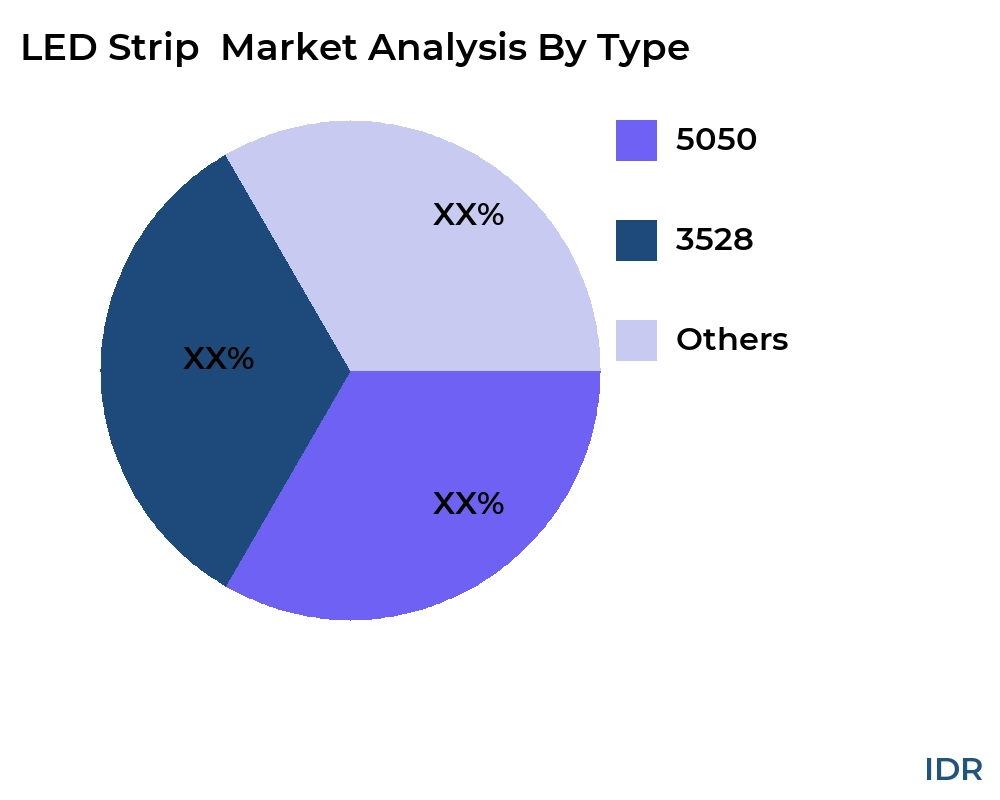
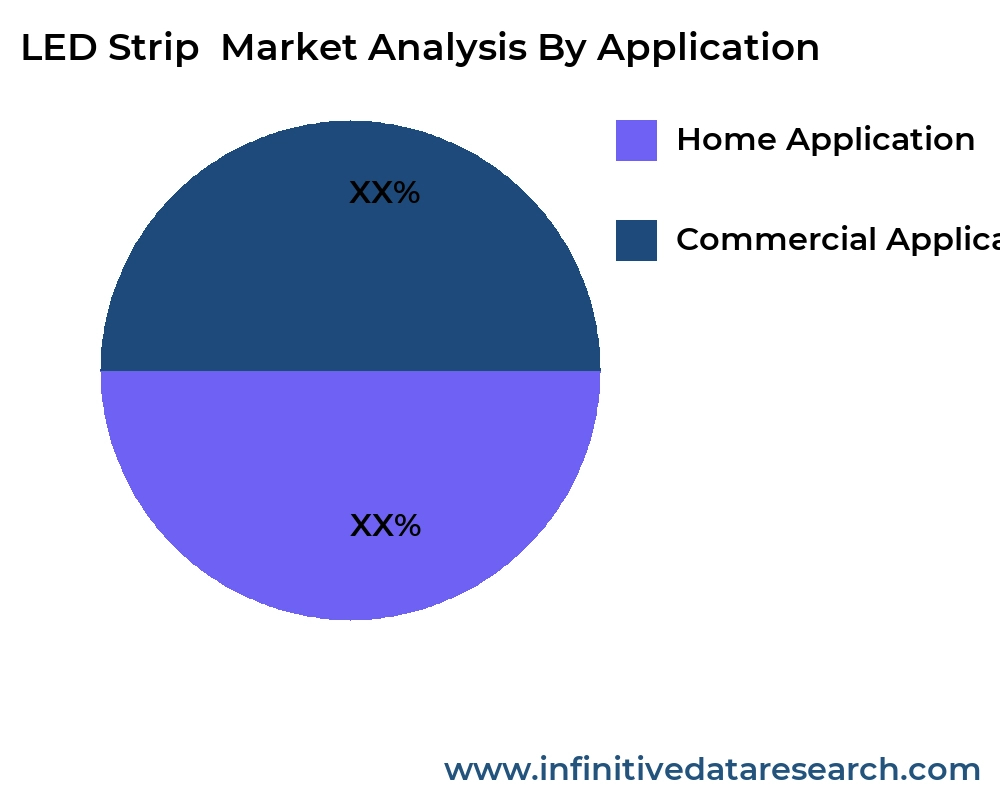
Led Strip Market Competitive Insights
The LED strip market is highly competitive, with a mix of established multinational corporations and agile regional players striving to capture market share. This intense competition fosters a continuous drive for innovation, with companies investing heavily in research and development to enhance product performance, durability, and integration with smart technologies. The competitive landscape is marked by frequent product launches, strategic pricing adjustments, and an emphasis on expanding distribution channels to reach a broader customer base.
Innovation is a cornerstone of competition in this market. Leading companies differentiate themselves through advanced features such as customizable color options, flexible designs, and integration with IoT platforms. These innovations not only improve the overall functionality of LED strips but also address specific consumer needs in various applications, from decorative accent lighting to industrial-grade installations. The constant push for technological advancements ensures that the LED strip market remains dynamic and responsive to emerging trends.
Strategic partnerships, mergers, and acquisitions are common in the LED strip market as companies seek to bolster their product portfolios and expand their geographic reach. Collaborations between technology developers, component manufacturers, and distribution experts enable companies to offer more comprehensive solutions and maintain a competitive edge. These alliances often lead to improved operational efficiencies, broader market access, and enhanced brand recognition, which are critical in a market characterized by rapid innovation and shifting consumer preferences.
Pricing strategies play a pivotal role in the competitive environment. With a diverse range of products available across various price points, companies are continually refining their offerings to balance quality and affordability. Manufacturers that can deliver high-performance LED strips at competitive prices often secure significant market share, particularly in price-sensitive emerging markets. This focus on cost-effectiveness, without compromising on performance or quality, is a key factor driving the competitive dynamics of the industry.
Finally, brand reputation and customer service are increasingly important in maintaining a competitive position. Companies that invest in building strong brands and delivering exceptional after-sales support tend to enjoy higher customer loyalty and repeat business. In an environment where product differentiation is often subtle, the overall customer experience—from initial inquiry to post-purchase service—can be a decisive factor in gaining an edge over competitors. As market players continue to innovate and evolve, these elements will remain central to long-term competitive success.
Led Strip Market Competitors
United States:
- Cree Inc.
- Acuity Brands Lighting Inc.
- Lithonia Lighting Company
- GE Lighting Solutions
- LED Innovations USA
Canada:
- Philips Canada
- Eaton Lighting Canada
- Daintree LED Solutions
- Luminary Canada
- Spectrum Lighting Canada
United Kingdom:
- Philips Lighting UK
- Osram UK
- LED Concepts UK
- LUX Lighting
- BrightTech UK
Germany:
- Osram Opto Semiconductors
- LEDVANCE
- Zumtobel Group
- Trilux
- Siteco
France:
- Philips France
- Sylvania France
- Lightolier France
- Arkema Lighting
- Lumens France
Italy:
- Enel X Lighting
- FLOS Lighting
- LED Italia
- Osram Italia
- Radialight
Spain:
- Philips Spain
- Osram Spain
- Iluminatión LED
- TecnoLED
- Luz Vega
Netherlands:
- Philips Lighting Netherlands
- Osram Nederland
- LED One
- Lumina Lighting
- ALED Netherlands
Sweden:
- LED Sweden
- Philips Sweden
- OSRAM Nordic
- Nordic Light
- Lumenix
Switzerland:
- Osram Switzerland
- LED Solutions Switzerland
- Philips Lighting Switzerland
- Swiss LED
- Lumen Swiss
Belgium:
- Philips Belgium
- Osram Belgium
- LED Concept Belgium
- Lumenix Belgium
- Bright LED Belgium
Austria:
- Philips Austria
- Osram Austria
- LED Austria
- Licht Tech Austria
- Lumina Austria
Australia:
- Philips Australia
- Osram Australia
- LED Lighting Australia
- Lumen Australia
- BrightLight Australia
New Zealand:
- Philips New Zealand
- Osram New Zealand
- Kiwi LED Solutions
- Lumen NZ
- LED Innovations NZ
Japan:
- Nichia Corporation
- Panasonic Lighting
- Toshiba LED
- Sharp Lighting
- Hitachi LED Solutions
South Korea:
- Samsung LED
- LG Innotek
- Seoul LED Solutions
- Osram Korea
- LED Tech Korea
China:
- Opple Lighting
- NVC Lighting
- Foshan LED
- Sanan Optoelectronics
- NationStar LED
India:
- Philips India
- Syska LED
- Havells Lighting
- Wipro Lighting
- Bajaj Electricals (Lighting Division)
Brazil:
- Philips Brazil
- Osram Brazil
- LED Brasil
- Tridonic Brazil
- Lumina Brazil
Mexico:
- Philips Mexico
- Osram Mexico
- LED Solutions Mexico
- Luminar Lighting
- Brillux Mexico
Russia:
- Osram Russia
- Philips Russia
- LED Russia
- Svetotekhnika
- Lumineux Russia
Turkey:
- Philips Turkey
- Osram Turkey
- LED Turkey
- ILED Technologies
- Anadolu LED
South Africa:
- Philips South Africa
- Osram South Africa
- LED South Africa
- Lumos Africa
- Bright LED Africa
United Arab Emirates:
- Philips UAE
- Osram UAE
- LED Innovations UAE
- Lumina UAE
- Emirates LED
Saudi Arabia:
- Philips Saudi Arabia
- Osram Saudi Arabia
- LED Saudi
- Bright Saudi
- Gulf LED
Israel:
- Philips Israel
- Osram Israel
- LED Israel
- Lumenis
- Innovate LED Israel
Singapore:
- Philips Singapore
- Osram Singapore
- LED Lighting Singapore
- Lumenix Singapore
- BrightSpark Singapore
Malaysia:
- Philips Malaysia
- Osram Malaysia
- LED Malaysia
- Lumina Malaysia
- Britech Lighting
Indonesia:
- Philips Indonesia
- Osram Indonesia
- LED Indonesia
- Lumos Indonesia
- Bintang LED
Thailand:
- Philips Thailand
- Osram Thailand
- LED Thailand
- Lumin Thailand
- Bright Tech Thailand
Led Strip Market Top Competitors
1. Philips Lighting (Signify):
A global pioneer in energy-efficient lighting, Philips Lighting has maintained its leadership position by continuously innovating and expanding its product range to include advanced LED strip solutions. With a robust R&D infrastructure, extensive distribution networks, and a strong brand reputation, Philips has consistently met the evolving demands of both residential and commercial customers. The company’s focus on sustainable lighting and smart connectivity has reinforced its status as a market leader and continues to set benchmarks in the industry.
2. Osram:
Osram is renowned for its longstanding expertise and innovation in lighting technology. The company’s diverse portfolio includes high-quality LED strips designed to meet stringent energy efficiency standards and diverse application needs. Osram’s commitment to technological advancement, evidenced by significant investments in research and development, has enabled it to consistently introduce cutting-edge products. Its global presence and strategic alliances further bolster its competitive position in the rapidly expanding LED lighting market.
3. Cree Inc.:
Known for its superior LED performance and reliability, Cree Inc. has established itself as a major player in the LED strip market, particularly in North America. The company leverages advanced semiconductor manufacturing and quality control processes to deliver LED products that offer exceptional brightness and durability. Cree’s continuous focus on innovation and sustainability has helped it secure a loyal customer base, positioning the company well for long-term growth in both industrial and consumer segments.
4. Nichia Corporation:
A trailblazer in LED technology, Nichia Corporation has made significant contributions to the advancement of LED chips and materials science. This Japanese company is widely respected for its innovative approach to product development, resulting in LED strips that combine high efficiency with superior color quality. Nichia’s commitment to R&D and sustainability has not only cemented its reputation as a technological leader but has also influenced industry standards worldwide.
5. Samsung LED:
As a division of the global electronics giant Samsung, Samsung LED leverages advanced semiconductor technology to develop high-performance LED strips. With a strong emphasis on smart connectivity and design innovation, Samsung LED offers products that are well-suited for modern, technology-driven applications. Its deep market penetration in Asia and growing influence in other regions underscore the company’s strategic investments in research, development, and manufacturing excellence.
6. LG Innotek:
LG Innotek is distinguished by its integration of sophisticated design and cutting-edge LED technology. Focusing on both form and function, the company produces LED strips that are not only energy-efficient but also seamlessly integrate with smart home systems. LG Innotek’s emphasis on innovation and quality has enabled it to build a robust portfolio that caters to a diverse range of applications, reinforcing its position as a forward-thinking competitor in the global LED lighting market.
7. Opple Lighting:
A leading Chinese manufacturer, Opple Lighting has rapidly emerged as a competitive force in the LED strip segment. The company’s strength lies in its ability to offer cost-effective, high-quality products that meet the rigorous demands of both domestic and international markets. By focusing on streamlined production processes and continuous product innovation, Opple Lighting has secured a strong foothold in the LED lighting industry and is well-positioned to capitalize on growing global demand.
8. NVC Lighting:
Another prominent Chinese player, NVC Lighting, has established a reputation for large-scale production and a comprehensive product range that spans residential, commercial, and industrial applications. The company’s strategic focus on efficiency, combined with its commitment to energy-saving solutions, has resulted in LED strip products that are both reliable and competitively priced. NVC Lighting’s expansive market reach and ongoing investments in technology make it a formidable competitor in the LED strip market.
9. Havells India:
Havells India has become synonymous with quality and innovation in the LED lighting space, particularly within the rapidly growing South Asian market. With a wide-ranging portfolio that includes versatile LED strips, Havells has built strong brand recognition through its focus on reliability, energy efficiency, and modern design. Its expansive distribution network and continual product enhancements position Havells India as a key player in a market characterized by increasing consumer demand and rapid urbanization.
10. LEDVANCE:
Emerging as a globally recognized brand after its strategic spin-off, LEDVANCE has quickly made a name for itself in the LED strip market. The company combines extensive industry expertise with a strong focus on sustainability and product innovation. LEDVANCE’s diverse product lineup, strategic global partnerships, and commitment to environmental responsibility have all contributed to its competitive positioning. By continually pushing the boundaries of technology, LEDVANCE is well-equipped to lead the market into its next phase of growth.
The report provides a detailed analysis of the LED Strip market across various regions, highlighting the unique market dynamics and growth opportunities in each region.
- US
- Canada
- Mexico
- UK
- Germany
- France
- Italy
- Russia
- Spain
- Switzerland
- Austria
- Belgium
- Rest of Europe
- China
- Japan
- South Korea
- Indonesia
- Vietnam
- Philippines
- Australia
- Thailand
- Singapore
- Rest of APAC
- UAE
- Saudi Arabia
- Egypt
- South Africa
- Israel
- Rest of MEA
- Brazil
- Argentina
- Rest of Latin America
>>> Need A Different Region Or Segment? Download PDF Sample
Key Takeaways
- The global LED Strip market is expected to grow significantly from 2024 to 2032, driven by technological advancements, increasing demand, and government investments in urbanization.
- The market is characterized by a diverse range of manufacturers, product types, and applications, catering to different consumer needs and preferences.
- Regional insights highlight the unique market dynamics and growth opportunities in various regions, including North America, Europe, Asia-Pacific, Latin America, and the Middle East & Africa.
- The competitive landscape features key players who have created a dynamic and diverse market environment through collaborations, mergers and acquisitions, and innovative product developments.
- Market trends such as technological advancements, sustainability, customization, and digital transformation are shaping the growth and development of the LED Strip market.
- Despite the positive outlook, the market faces challenges such as regulatory compliance, high initial investment costs, and economic uncertainties.
- The report provides comprehensive coverage of market size, market share, growth factors, and strategic insights to help businesses navigate the dynamic LED Strip market and achieve long-term success.
By leveraging the information provided in this report, businesses can develop effective strategies, address market challenges, and capitalize on growth opportunities to ensure sustainable growth and long-term success in the global LED Strip market.
- Introduction
- Objectives of the Study
- Market Definition
- Research Scope
- Currency
- Key Target Audience
- Research Methodology and Assumptions
- Executive Summary
- Premium Insights
- Porter’s Five Forces Analysis
- Value Chain Analysis
- Top Investment Pockets
- Industry Trends
- Market Dynamics
- Market Evaluation
- Drivers
- Restraints
- Opportunities
- Challenges
- Global LED Strip Market Analysis and Projection, By Companies
- Segment Overview
- Forge Europa
- LEDVANCE
- Ledridge Lighting
- Digital Advanced Lighting
- Lighting Ever
- LEDMY
- Global LED Strip Market Analysis and Projection, By Type
- Segment Overview
- 5050
- 3528
- Others
- Global LED Strip Market Analysis and Projection, By Application
- Segment Overview
- Home Application
- Commercial Application
- Global LED Strip Market Analysis and Projection, By Regional Analysis
- North America
- US
- Canada
- Mexico
- Europe
- UK
- Germany
- France
- Italy
- Russia
- Spain
- Switzerland
- Austria
- Belgium
- Rest of Europe
- Asia Pacific
- China
- Japan
- South Korea
- Indonesia
- Vietnam
- Philippines
- Australia
- Thailand
- Singapore
- Rest of APAC
- Middle East
- UAE
- Saudi Arabia
- Egypt
- South Africa
- Israel
- Rest of MEA
- Latin America
- Brazil
- Argentina
- Rest of Latin America
- Global LED Strip Market-Competitive Landscape
- Overview
- Market Share of Key Players in the LED Strip Market
- Global Company Market Share
- North America Company Market Share
- Europe Company Market Share
- APAC Company Market Share
- Competitive Situations and Trends
- Coverage Launches and Developments
- Partnerships, Collaborations, and Agreements
- Mergers & Acquisitions
- Expansions
- Company Profiles
- Forge Europa
- Business Overview
- Company Snapshot
- Company Market Share Analysis
- Company Coverage Portfolio
- Recent Developments
- SWOT Analysis
- LEDVANCE
- Business Overview
- Company Snapshot
- Company Market Share Analysis
- Company Coverage Portfolio
- Recent Developments
- SWOT Analysis
- Ledridge Lighting
- Business Overview
- Company Snapshot
- Company Market Share Analysis
- Company Coverage Portfolio
- Recent Developments
- SWOT Analysis
- Digital Advanced Lighting
- Business Overview
- Company Snapshot
- Company Market Share Analysis
- Company Coverage Portfolio
- Recent Developments
- SWOT Analysis
- Lighting Ever
- Business Overview
- Company Snapshot
- Company Market Share Analysis
- Company Coverage Portfolio
- Recent Developments
- SWOT Analysis
- LEDMY
- Business Overview
- Company Snapshot
- Company Market Share Analysis
- Company Coverage Portfolio
- Recent Developments
- SWOT Analysis
List of Table
- Drivers of Global LED Strip Market: Impact Analysis
- Restraints of Global LED Strip Market: Impact Analysis
- Global LED Strip Market, By Technology, 2023-2032(USD Billion)
- global 5050, LED Strip Market, By Region, 2023-2032(USD Billion)
- global 3528, LED Strip Market, By Region, 2023-2032(USD Billion)
- global Others, LED Strip Market, By Region, 2023-2032(USD Billion)
- global Home Application, LED Strip Market, By Region, 2023-2032(USD Billion)
- global Commercial Application, LED Strip Market, By Region, 2023-2032(USD Billion)
List of Figures
- Global LED Strip Market Segmentation
- LED Strip Market: Research Methodology
- Market Size Estimation Methodology: Bottom-Up Approach
- Market Size Estimation Methodology: Top-down Approach
- Data Triangulation
- Porter’s Five Forces Analysis
- Value Chain Analysis
- Top investment pocket in the LED Strip Market
- Top Winning Strategies, 2023-2032
- Top Winning Strategies, By Development, 2023-2032(%)
- Top Winning Strategies, By Company, 2023-2032
- Moderate Bargaining power of Buyers
- Moderate Bargaining power of Suppliers
- Moderate Bargaining power of New Entrants
- Low threat of Substitution
- High Competitive Rivalry
- Restraint and Drivers: LED Strip Market
- LED Strip Market Segmentation, By Technology
- LED Strip Market For Live Attenuated, By Region, 2023-2033 ($ Billion)
- Global LED Strip Market, By Technology, 2023-2032(USD Billion)
- global 5050, LED Strip Market, By Region, 2023-2032(USD Billion)
- global 3528, LED Strip Market, By Region, 2023-2032(USD Billion)
- global Others, LED Strip Market, By Region, 2023-2032(USD Billion)
- global Home Application, LED Strip Market, By Region, 2023-2032(USD Billion)
- global Commercial Application, LED Strip Market, By Region, 2023-2032(USD Billion)
- Forge Europa: Net Sales, 2023-2033 ($ Billion)
- Forge Europa: Revenue Share, By Segment, 2023 (%)
- Forge Europa: Revenue Share, By Region, 2023 (%)
- LEDVANCE: Net Sales, 2023-2033 ($ Billion)
- LEDVANCE: Revenue Share, By Segment, 2023 (%)
- LEDVANCE: Revenue Share, By Region, 2023 (%)
- Ledridge Lighting: Net Sales, 2023-2033 ($ Billion)
- Ledridge Lighting: Revenue Share, By Segment, 2023 (%)
- Ledridge Lighting: Revenue Share, By Region, 2023 (%)
- Digital Advanced Lighting: Net Sales, 2023-2033 ($ Billion)
- Digital Advanced Lighting: Revenue Share, By Segment, 2023 (%)
- Digital Advanced Lighting: Revenue Share, By Region, 2023 (%)
- Lighting Ever: Net Sales, 2023-2033 ($ Billion)
- Lighting Ever: Revenue Share, By Segment, 2023 (%)
- Lighting Ever: Revenue Share, By Region, 2023 (%)
- LEDMY: Net Sales, 2023-2033 ($ Billion)
- LEDMY: Revenue Share, By Segment, 2023 (%)
- LEDMY: Revenue Share, By Region, 2023 (%)
Infinitive Data Research provides comprehensive market research, offering in-depth market analysis to help companies understand their target market and industry competition. This research predicts the market acceptance of your brand and products, ensuring informed decision-making for business success.
Competitor Analysis in the LED Strip Industry
Conducting a competitor analysis involves identifying competitors within the LED Strip industry and studying their various marketing strategies. This comparative data allows you to assess your company's strengths and weaknesses relative to competitors, providing insights to enhance your market position.
Importance of Continuous Market Research
Consistently conducting market research is essential for minimizing risk at every stage of business operations. LED Strip market research enables you to collect qualitative and quantitative data, which, when properly analyzed, leads to wise decisions that align with user and customer needs. Below are some crucial lessons learned through the LED Strip market research process:

Key Dimensions of LED Strip Market Analysis
- Trend and Pattern Identification: Analyzing data to spot market trends and patterns.
- Pricing Analysis: Assessing keyword pricing strategies.
- Actionable Insights: Implementing insights derived from data analysis.
- Market Potential: Evaluating the potential of the LED Strip market.
- Competitor Analysis: Studying competitors' strategies and performance.
- Location Analysis: Assessing optimal locations for market penetration.
- Distribution Channels Analysis: Evaluating the effectiveness of distribution channels.
- Market Size and Growth Rate: Measuring market size and growth potential.
- Market Profitability: Assessing profitability prospects.
- Key Success Factors: Identifying critical factors for success.
- Cost Structure: Understanding the cost structure within the LED Strip industry.
Target Audience for the Report
This report is valuable for a diverse audience, including:
- LED Strip Market Manufacturers: To understand market dynamics and enhance production strategies.
- Investors and Financing Companies: To assess investment opportunities and risks.
- LED Strip Market Suppliers: To identify market demands and supply chain efficiencies.
Necessity of the Report
Making Crucial Business Decisions
Understanding the LED Strip market, competition, and industry landscape is vital for making informed business decisions. Without current and relevant market research, decisions may be based on outdated or irrelevant information, potentially harming the business.
Securing Investment Funds
Attracting investors requires demonstrating thorough market research. Investors need assurance that you understand the sector, current and potential competition, and whether your idea addresses a market need.
Identifying New Business Opportunities
LED Strip market research goes beyond understanding trends and consumer behavior. It identifies new revenue streams and opportunities for business pivots. These insights can lead to strategic changes in the business model, promoting growth and adapting to market challenges.
Avoiding Business Failures
Market research also plays a crucial role in risk mitigation. It can reveal when not to pursue certain actions, saving the company from potential losses in revenue, brand image, and more. This proactive approach is often overlooked but is essential for long-term success.
Conclusion
Infinitive Data Research's comprehensive LED Strip market research provides critical insights for making solid business decisions, securing investments, identifying new opportunities, and avoiding potential failures. Understanding market dynamics through continuous research ensures your company remains competitive and thrives in the LED Strip industry.

